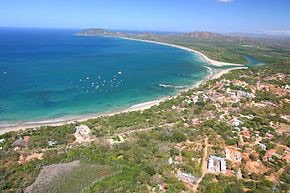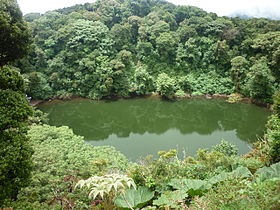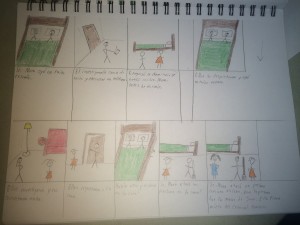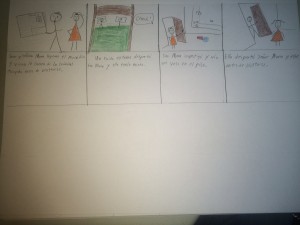Character Map: Makenna
Makenna es la protagonista de la cuenta Robo en la Noche. Ella tiene quince anos y vive en Costa Rica. El padre de Makenna se llama David, y la hermana de Makenna se llama Alex. Makenna movio de Michigan porque David es un ecologo. Makenna no quere mover y ella esta triste porque ella deja su caballo en Michigan, y la madre de makenna esta muerta.
Si visitaría Costa Rica…
- Me gustaria visitar Cloud Forest
- Me gustaria ir de pesca
- Me gustaria visitar Isla de Coco
- Me gustaria aprender Español
- Me gustaria ir a la playa
- Me gustaria comer frutas y verduras
Photo Courtesy: http://no.m.wikipedia.org/wiki/Tamarindo_(Costa_Rica)
Photo courtesy: http://en.m.wikipedia.org/wiki/Barva_Volcano:
El Ruido Extrano
Blog post #5
Blog Post #5: Photo Thematic Motif
I selected this particular photo because it reflects the thematic motif of entrapment that I selected and followed throughout the book. Esperanza’s life is quite similar to a jail cell because of her poverty and her family.
Esperanza was not born into a family that is very well off. There are many instances throughout the book that show the family is deep in poverty such as the house they live in, which has “wooden bars papa had nailed on the windows so we wouldn’t fall out (Cisneros 5)”. Esperanza hates this house. She is embarrassed whenever she has to point it out to people and constantly dreams of the day when she can own a house that belongs soley to her. The house she dreams of is much nicer than the one they currently live in and is the best house her young mind can imagine. Despite the firey passion she hates the house with, Esperanza is too young to change where she lives, which is why she is entrapped by her poverty.
When I selected this photo it reminded me of a project I did earleir in the year over the entrappment of Charles Darnay in A Tale of Two Cities. I can remember picking a similar picture to represent when Darnay was falsely imprisonned, and that made me stop to consider the similarities between the two. While it seems the two are completely unrelated, there are a few similarities. One such similarity is the fact that neither of the two could do anything about their entrappment at the time the stories were told. Esperanza was much too young to influence where she lives, and Darnay had no choice but to go to prison. Another similarity is that both characters were entrapped because of the family they were born into. Esperanza is born into her poverty and Darnay is arrested because of his family relationship with a noble. This photo represents a lack of freedom, which is present in The House on Mango Street and other books we have read throughout the year.
Blog Post #4
Blog Post #4: Advertisement
Come Live On Mango Street
Are you tired of living around stuck-up rich people? Do you want to live in a neighborhood that supports the values of community and togetherness? Do you want a house at a price cheaper than dirt? If you answered yes to any of these questions, then Mango Street is the place for you! This street is full of hardworking individuals from all walks of life. It’s also a great place for kids! Kids can be seen playing all over the neighborhood, even on nieghbors roofs (the sense of community is so strong that they don’t even mind). Your kids will have plenty of friends to chose from, but they won’t be the only ones! You’ll be amazed by the character of the people who live here. You can easily find someone to get a drink with any time of the day! So come on down to Mango Street and find yourself a home today!
Blog Post #3
Blog Post #3: Five-Star Quote
“You can never have too much sky. You can fall asleep and wake up drunk on sky, and sky can keep you safe when you are sad. Here there is too much sadness and not enough sky.(33)”
Here’s a profound statement about life and what Esperanza thinks about it. When she says sky, she really means heaven. She’s saying that there’s too much earth in life and not enough heaven. A reason she may feel this way is because of the lifestyle she has. She is deeply in poverty, a minority that is frequently discriminated against, and she also describes herself as a girl that is not physically attractive. All three of these things cause an unhappy life for Esperanza which in turn causes her to think “there is too much sadness and not enough sky.” Esperanza wants to trade in all the negative parts of her life just so she can get some more sky.
I can’t personally relate to why she would say this because I don’t have the same problems that she does, and hers are undoubtly worse. I don’t look up at the sky and think I need more of it,but Esperanza must need a release in life when things get tough. She needs a way to escape all of her problems and the sky is always there for her.
Blog Post #2
Blog Post #2: Letter
Dear Sally,
Why’d you kiss that boy that stole your keys? Why didn’t you tell his mom or your dad or do anything but kiss him? Did you like it? You must have since we went to that carnival with him and left me alone with those boys. You were gone so long! What were you doing for that long? I waited and waited for you to come back, but then those other boys did awful things to me. Awful awful things. It’s all your fault too. I was just trying to be a good friend and you left me and let those boys do those terrible things to me. I hate you. I could never have said that in person because I was scared you would leave me with them again but I really do. You ruined my thoughts on boys and you took away the monkey garden too. I can’t ever enjoy it because every time I go in there I remember how you made me look like a fool for trying to help you. Every time I’m in there I feel like I should just lay down and will myself to die and become a part of the garden.You’re a terrible person and I know why your husband treats you like he does. You deserve it. I don’t ever want to see you again and hope I never have to hear from you again.
Regards,
Esperanza
Blog post #1
Blog Post #1: Metaphors
In “ The Monkey Garden” Cisneros uses metaphors to convey the theme of life being different from a child’s point of view. She starts using this technique at the very beginning of the vignette, by saying “The monkey moved-to Kentucky- and took his people with him (Cisneros 94)”. A child who had more encounters with the monkey than its owners would have seen the situation of the family moving as the monkey’s decision and the monkey toting around the humans, while people older than her would know that the monkey was a pet and left because the humans left. Cisneros also uses this device to draw the vignette to an end. After Esperanza is embarrassed by her friend Sally and a group of guys, she “wanted to be dead, to turn into the rain, my eyes melt to the ground like two black snails(97-98)”. Cisneros mixes in metaphors and similes to show us what a child would think in that situation. Esperanza’s reaction reveals that a kid would just want to disappear in the event of embarrassment instead of finding a way to deal with it. This shows that a child would not know how to cope with this new emotion. In both instances Cisneros uses a metaphor to shed light on how a young kid views the world around them.










